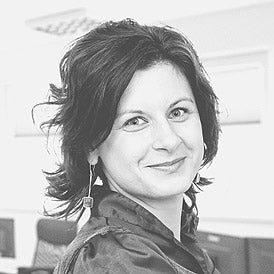In the coming several months, 55% of organisations in Poland plan to increase investments in employee management – according to the report “Trends in HR 2017 – new rules in the era of digitalisation” by Deloitte. The report shows which challenges face business and HR managers in the current social, economic and digital reality. Following trends is essential in achieving a company’s success – Says Robert Strzelecki – vice president and COO of TenderHut, a technological company, which is gaining more and more recognition within the industry.
The digital revolution enters HR departments.
As the digitalisation process progresses, company executives and HR managers should consider implementing innovative technologies, which may support human resources management. According to data, 56% of organisations modify their HR management tools so that they can be used by digital and mobile tools. On the other hand, 33% of enterprises use various forms of applications based on artificial intelligence and designed to solve HR management problems. From a company’s point of view, every innovation that improves its performance is important. A large number of employees are young people, who use smartphones, mobile apps and other capabilities created by constantly developing technology in their personal and private life The Zonifero app – an innovation in Polish offices, is designed as an office manager. Its author and creator is Robert Strzelecki, who encountered organisational problems in his own company. When an employee needs to move between different locations within the same company, he often wastes hours in order to reach the desired location or contact a particular co-worker. Large office buildings are starting to resemble mazes. When using Zonifero, we have insight on the location of other colleagues as well as their phone numbers. We can also book conference rooms and notify other people that we want to contact them. Through Zonifero, we can even report equipment malfunctions or ideas for improving the office. All these functionalities greatly improve the everyday work routine – says Robert Strzelecki. It is essential for organisations to follow technological development trends, which is why more activities are done online to improve a company’s performance.
Building an organisation of the future is a priority
Technological changes are rapid. They completely transform our lifestyle, work and how we communicate. Organisations are trying to adapt to these changes. For almost 90% of HR department managers throughout the world, building an organisation of the future is a key priority. More and more organisations are implementing models of organisation based on the increasingly growing trend of working online. Today, business is made on the internet. Online business meetings are becoming more popular due to the fact that a project can be implemented by specialists from several countries. What seemed unreal a couple of years back is becoming reality today – adds Strzelecki. According to Deloitte, only 35% of HR specialists say that the level of efficiency in their departments is “good” or “very good”. Only 11% of respondents know how to create an organisation of the future. What needs to be remembered however, is that not everything is based on activities online. Employees need to bear in mind that there are some requirements and standards that need to be met so that people can have better working conditions.
Keep your ear on the ceiling
According to research, only 2% of workplaces in Poland meet ergonomics standards, and less than half partially fulfil these standards. The goal of the research was to inform employers that inadequate working conditions make their image worse and expose them to costs associated with sick leave and consequently decreased working efficiency. It’s worth noticing that, year by year, more entrepreneurs are aware of the issue and understand the need to adapt offices to legal regulations, including high standards of finishing and equipment. The awareness that improving work comfort in the office will yield tangible effects and increase the quality of performed tasks is growing – says Paweł Gossa, CEO of INVESTCOVER, a company which specialises in implementing investment projects concerned with constructing and modernising offices.
– Not many people are aware of the fact that the absence of suspended ceilings, which is more and more noticeable in modern offices, may cause acoustic problems related to high frequency noises. These noises are generated by the large number of technical devices installed under the ceiling, such as fan coils and valves limiting the flow of liquids, or air within ventilation ducts. Another problem is bound up with the echo and reverberation effects caused by the reflection of sound waves off of wall surfaces, including glass walls, ceilings and hard equipment. All these elements, if adequate precautions are not taken, may decrease the quality of the work environment and contribute to problems with concentration, thus decreasing effectiveness at work.
This is just an example, but it illustrates that, when arranging the office, we have to be focused on even the smallest details. Therefore, due to the complexity of the entireinvestment process, including all factors having a direct impact on the final effect, many organisations decide to entrust the task of managing modernisation or office design to professionals who are able to put together and combine all elements to achieve the intended effect within the prescribed time and budget – adds Paweł Gossa.
Effectiveness depends on spatial planning
There are many factors that influence work efficiency, among which office space plays a crucial role. Traditional rooms and desks are becoming a thing of the past. – Workers need to feel comfortable in the office. That is why spaces that enhance creativity are replacing traditional solutions more and more often. The era of open space, where each employee has an assigned desk, is slowly transforming to a new, more mobile model of the office, called Activity-Based Working. Office space isn’t divided into particular workplaces but rather into special areas for performing particular duties. Workers can choose an area depending on the activities that they are performing at the moment. The manner in which work is performed is flexibly matched to employees’ needs. A workplace does not have to consist of a desk and chair. – In many organisations, special areas where employees can communicate are created. This is very important, because workers like to discuss their ideas with other people and receive advice from other workers. Areas intended for leisure are also essential, so that workers will not disturb their colleagues while relaxing. Dividing the office into areas is a natural trend that evolved from a changing style of work, therefore more and more organisations are following it –Says Paweł Gossa.
„Constant feedback”
In the coming years, HR departments will focus on processes concerning so-called ,,softHR’’. As it turns out, according to research performed by Deloitte, 58% of high-level managers declare that traditional methods of managing workers’ productivity do not increase their commitment and efficiency with respect to performed duties. With this said, annual employee evaluation reports are becoming a thing of the past. The new trend is currently so-called constant feedback. This is a new approach towards managing effectiveness, based on direct and frequent contact between workers and managers, while using other co-workers’ opinions. Positive feedback influences the growth of motivation, and in the end, it increases satisfaction with the work performed. Constructive feedback may also be a driving factor for implementing changes. Modern management of human resources is an indispensable part of a company’s success.
Current leading trends in human resources, such as implementing innovative technologies, educating and developing skills, as well as constant feedback, have an enormous influence on the quality of work in organisations. Employers should bear that in mind.



